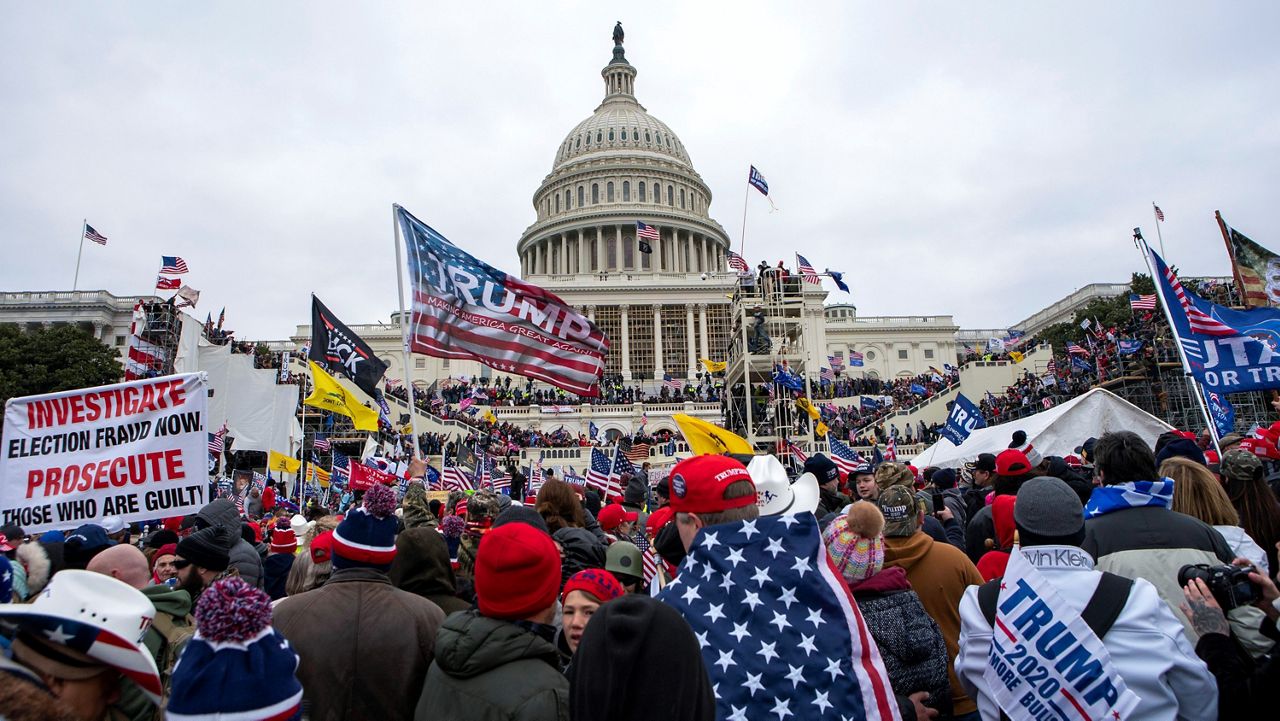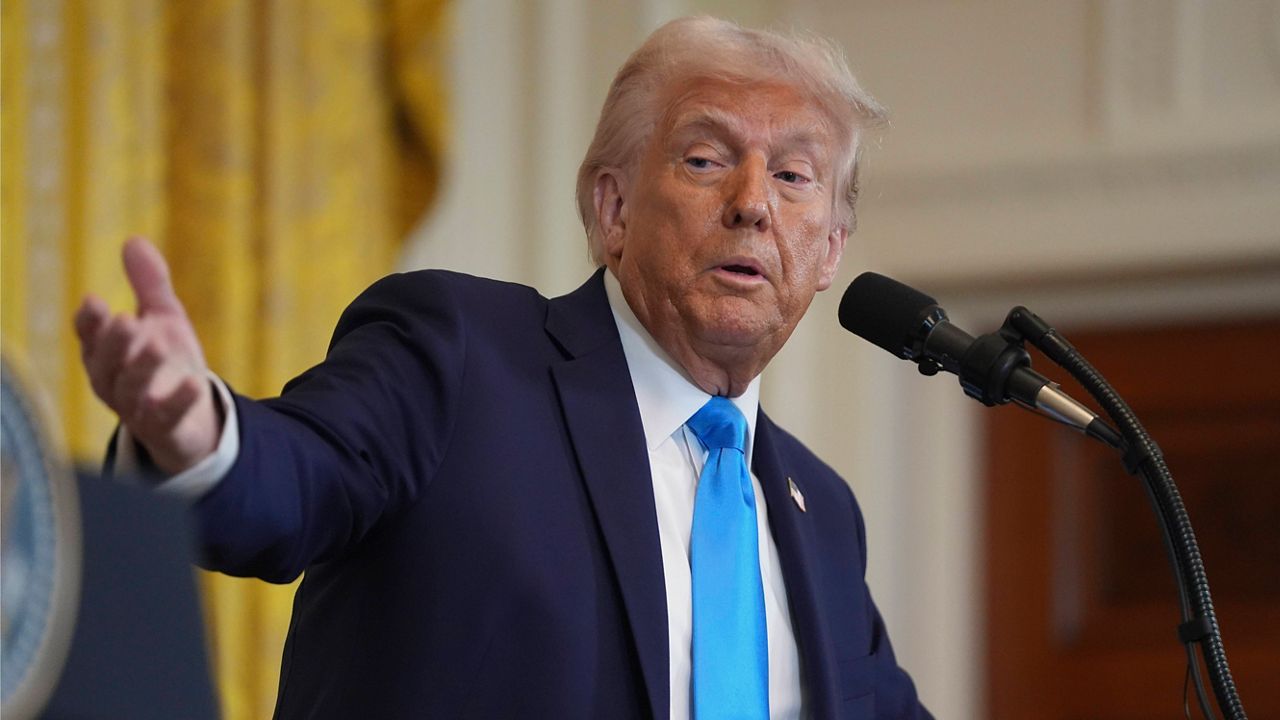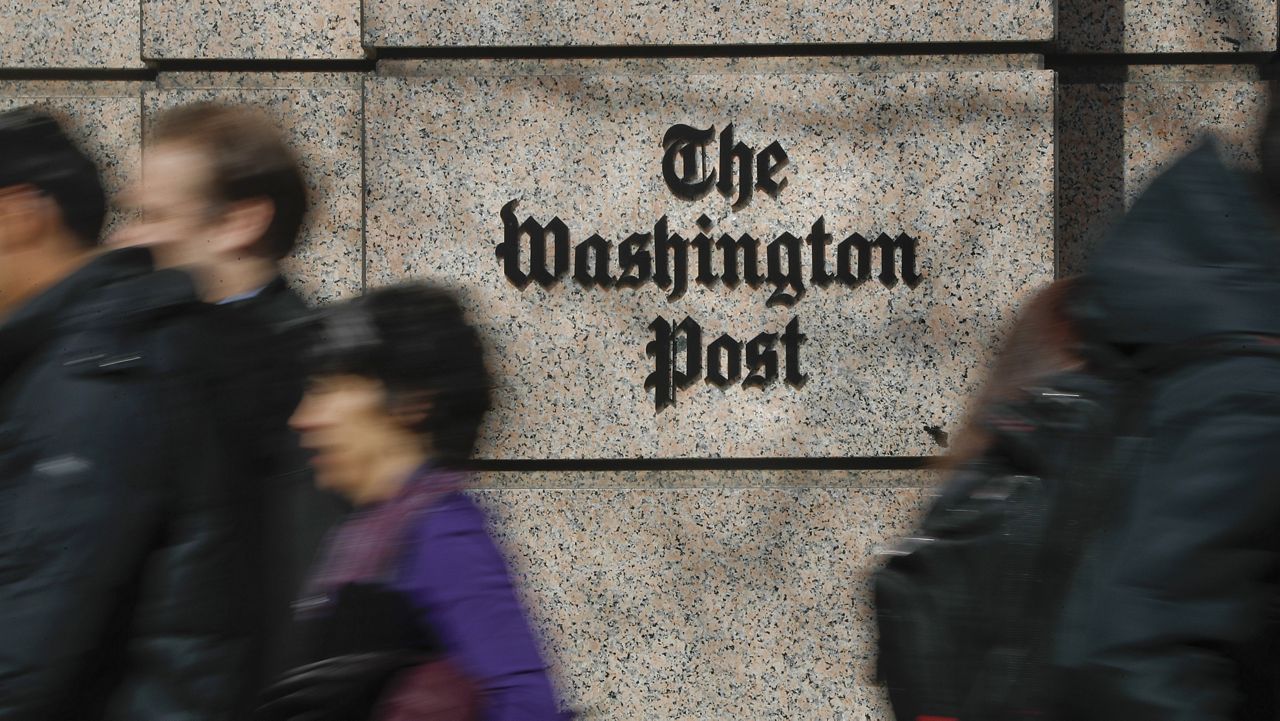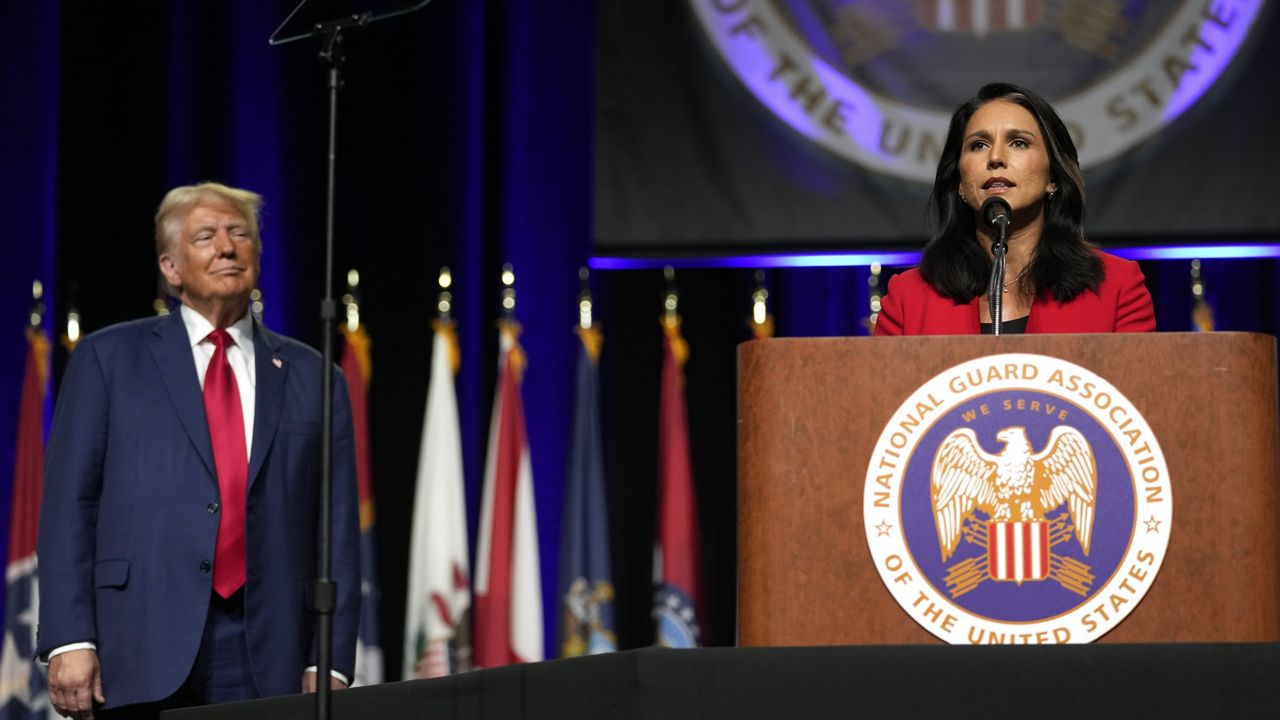Democrats and Republicans are both more likely to vote for their respective favored candidates in November’s election by Vice President Kamala Harris replacing President Joe Biden as the Democratic nominee, according to the latest American Identity Poll from Ipsos and Syracuse University’s Institute for Democracy, Journalism & Citizenship released Friday.
According to the survey, 31% of respondents overall said that the vice president taking the top spot on the Democratic ticket made them more likely to vote for Harris — including 61% of Democrats and 32% of independents — while 29% said it made them more likely to vote for Republican presidential candidate Donald Trump — including 63% of Republicans and 23% of independents. Thirty-one percent said it didn’t motivate them one way or another.
Margaret Talev, director of the Institute for Democracy Journalism and Citizenship at Syracuse University, said that the results show that Harris taking over for Biden “did give Democrats a boost.”
“That suggests that there is a lot of support for her, a lot of folks who like her, who say she's likable, at least inside the Democratic Party, but also among independents,” Talev told Spectrum News in an interview. “For every two independents who said they were more likely to support former President Trump after Biden dropped out, three actually said that they were more likely to move towards Vice President Harris.”
“So it may mean that they find Vice President Harris likable,” she added. “It also might just mean that they really didn't like President Biden as a candidate, and they're happier that they have her as a choice. “
Eighty-one percent of respondents said that in the last month, they have not considered voting for a third-party candidate, compared to 18% who have. Eighty-five percent say that they have not considered voting for independent candidate Robert F. Kennedy Jr., compared to just 14% who have.
Amid a busy summer in politics heading into November’s election, Harris’ replacement of Biden as the Democratic presidential nominee was the top motivating factor behind respondents’ decisions to back their favored candidate — the next one being the selection of Minnesota Gov. Tim Walz to be her running mate.
Fifty-four percent of Republicans, along with 20% of independents, said that Harris picking Walz made them more likely to vote for Trump, compared to 50% of Democrats and 22% of independents who were more inclined to back the vice president.
On the flip side of that, just 22% said that Trump picking Ohio Sen. JD Vance — 50% of Republicans and 13% of independents — made them more likely to back the Republican ticket; slightly more (23%) said it made them more likely to back Harris, including 48% of Democrats and 21% of independents.
Thirty-six percent of respondents, including 65% of Democrats and 36% of independents, agree that Harris’ odds of winning are bolstered by Walz becoming her running mate, compared to 31% — 59% of Republicans and 29% of independents — who disagree.
Just 25% percent agree that Vance helps Trump’s odds of winning. Forty-one percent disagree, including 43% of independents.
“These poll respondents are saying that they think that Gov. Walz will help Vice President Harris on the ticket more than they think that Sen. Vance will help former President Trump,” said Talev. “They're not necessarily saying ‘I like Tim Walz more than I like JD Vance’ … those tend to be really partisan responses, but they're saying that from a strategic perspective in terms of who is going to help the respective tickets, they think that Tim Walz is a bigger boost for the Harris ticket than JD Vance is for Donald Trump's chances.”
Fifty-three percent of respondents said that the assassination attempt on Donald Trump at his rally last month did not motivate them to vote for either candidate. The shooting motivated just 24% of respondents, including 52% of Republicans, to want to vote for the ex-president — an increase from 18% from a survey last month — while just 14%, including 33% of Democrats, said it made them more likely to vote for Harris.
“The real story behind these numbers is about party ID,” Talev said, later adding that there wasn’t much movement across party lines in terms of support because of the shooting.
Despite the poll’s deep divisions, one thing that a vast majority of respondents agree upon is the importance of both candidates facing off in a debate. Nearly eight in 10 respondents — 78% — emphasized the importance for there to be a televised debate between Harris and Trump, a sentiment echoed across party lines, compared to just 20% who said it’s not important.
Forty-eight percent believe that Trump skipping a debate would harm his candidacy, compared to just 4% who said it would help — 45% believe it would have no impact, including 56% of Republicans.
Roughly a third of voters (32%) believe that if they don’t vote in November’s election, it will not impact the contest either way.
The poll was conducted from Aug. 9-11 with 1,091 respondents — 326 Republican, 335 Democrats and 337 independents. The margin of error was +/- 3.1. Read the full results of the poll here.









